Defending champs hit speed bump; Will roster regroup?
Around the Perimeter: London falling short from three, free throw line; Busy stretch to close out 2024; Will Bolts add to roster?; Fun with math. Columnist Jason Winders’ latest Lightning news & notes …
(Photo: Barry Field Photography).
* * *
WHAT HAPPENED THIS WEEK.
KW 112 – London (2-1) 111 | Wednesday, Dec. 11 in London
Windsor 124 – London (2-2) 116 | Friday, Dec. 13 in Windsor
WHAT WE LEARNED.
This team has not meshed yet – and if it doesn’t start, then changes may be coming. Soon.
Those might seem like stark words only four games into the season, but neither head coach nor front office are in love with the early trending of this team.
“Losing is like death here,” explained Lightning head coach Jerry Williams. “It’s not the same as other places. It’s a totally different atmosphere.”
While fans might shrug off two losses by a combined nine points, Williams sees problems that need to be addressed now. “When I’m looking at that stat sheet and I see three of my starters not giving me anything, it’s embarrassing to me.”
While the team faces some specific challenges (more on those below), the first-year Bolts boss looks beyond the numbers, targeting attitude and focus – two aspects which, any fan can tell you, have been spotty early on.
You saw the team looking lost and disoriented coming out of a timeout with six seconds to play and down one point against KW – resulting in a Joel Kindred turnover without a shot attempt. You saw Billy White take himself out of plays down the stretch against Windsor by opting to pout and argue non-foul calls instead of getting back on defense. You saw free throw after free throw clang off the rim.
“It’s a lack of effort, a lack of concentration,” Williams said. “Some guys are here just to say that they play for London instead of playing for London. There’s a difference. You have to show up and produce. I think some guys are just happy to be here, and that’s not what I want. I want guys who are going to show up and give max effort every game. I don’t have everybody doing that; I only have a handful of guys doing that.”
He continued, “I only have nine players right now. We need everyone to show up. If they don’t, then these are the results you're going to get.”
(Photo: Barry Field Photography).
Combine the underperformance among some players with a short roster and you realize that changes may be coming for the Lightning as they end the calendar year with a busy run of five games. It has yet to be seen if the Lightning front office will be willing to extend the roster given the top-heavy talent on board already.
“We’re not here to be here; we’re here for a reason,” Williams said. “We’re not just here to say, ‘OK, I play for the Lightning and that’s what it is.’ This organization is special; we win for a reason. Guys got to understand that. I don’t think some guys understand.”
* * *
Lightning guard Alex Campbell has temporarily stepped away from the team. He last played Dec. 8 against Windsor, where he was limited to no points in five minutes of floor time. That leaves the roster at just nine players.
WHAT WAS AWESOME.
Well … this is a tough category after an 0-2 week. But perhaps perspective is best in a case like this.
The Lightning sit at 2-2, but don’t panic just yet. The 2024 squad started the season 0-2, reaching .500 in the fourth game, and then ended the season with a BSL championship. The 2023 squad started the season 1-2, reaching .500 in the fourth game, and then ended the season with an NBLC championship.
You need to go back to 2018-19 to find a Lightning team that flirted with .500 deep into the season. That year, the squad was 16-16 on the way to a 22-18 finish. That was good enough to win the Central Division (resulting in a first-round playoff exit, however). That was a tumultuous season which saw head coach Keith Vassell, who won a championship the previous year, fired after a 4-4 start.
(Photo: Barry Field Photography).
This year is different, with a new head coach and a largely new roster. But the expectations are the same.
“If the guys come in with the right attitude and the right situation, we will be fine. But we should be undefeated right now,” Williams said. “If we just come in with the right attitude and know that we’re here to work, we will be fine. But the Christmas party is over. We’re 2-2. There are no more gifts here.”
“I really love this team. I think this team is going to do some great things. But some guys need to get their ass kicked a little bit to realize what we have here. Some guys are just sitting on the porch and just thinking everything is cool. But it’s not. We have to win. That is what it is.”
* * *
Tonzell Handy is off to a sneaky strong start. He leads the league in field goal percentage at 85% (17-20), as well as points/40 minutes (34.7). He played a season-high 21 minutes against the Express on Friday.
* * *
There are three kinds of lies: lies, damned lies, and statistics. I know, I know, analytics are weird in basketball (unlike baseball, for example, which now seems to be played on a spreadsheet rather than a diamond). Here’s proof:
London leads the league in offensive efficiency at 1.167. Math break: A team with an offensive efficiency of 1.167 scores an average of 1.167 points per possession, which translates to 116.7 points per 100 possessions, a sign of a highly efficient offense, even in this high-scoring league.
London is next to last in defensive efficiency at 1.141. Math break: A team with a defensive efficiency of 1.141 gives up an average of 1.141 points per possession, which translates to 114.1 points per 100 possessions, a sign of a struggling defense.
Those two stats combine to give the team a net efficiency rating of .026 – that’s barely above water, and good for only sixth in the league. Math break: A net efficiency of 0.026 means the team outscores their opponents by an average of 2.6 points per 100 possessions, indicating a slight overall advantage.
(Photo: Barry Field Photography).
So, what does this mean?
Let’s add it all together. A 0.026 net efficiency with a 1.167 offensive efficiency, a 1.141 defensive efficiency and a 2-2 record suggests a team that is just kind of, as the kids say, ‘mid’ right now. London’s offense keeps them afloat, but their poor free throw shooting and weak defense mean they’re making life harder than it needs to be. They can score, but missed freebies and a leaky defense keep every game uncomfortably close.
I know it hasn’t looked like it on the court (and some of the below numbers will be ugly), but all is not lost four games in. Numbers don’t lie.
WHAT NEEDS WORK.
Two big problems plague the team’s three-point shooting: They aren’t shooting enough threes, and when they do shoot the three, they’re not making them. Other than that, everything is great from the outside …
Through four games, the Lightning have taken the fewest three-pointers in the league (besides Jamestown, who has played just one game), shooting 33-92 (35.9%). Take a look at the shooters with the most three-point attempts so far:
Paul Parks | 10-26 (38.5%)
Chris Jones | 7-17 (41.2%)
Billy White | 4-13 (30.8%)
Joel Kindred | 4-13 (30.8%)
Marcus Ottey | 4-9 (44.4%)
Who do you turn to when the game is on the line?
“Mark (Frijia, Lightning GM) and I built a team we felt had some great three-point shooters,” Williams said. “We’re just not hitting the shots. They’re not falling. The guys who are supposed to be shooters are not shooting the basketball the way they should. It is mind-boggling.
“I’ve never been a part of a team where we didn’t shoot the ball as well as we’re not shooting right now.”
On the flip side, the Lightning are averaging 72 points in the paint per game – a pretty incredible figure tipping a hat to the work being done below the rim. But that’s not enough to keep up.
“That’s cool. We can do the inside-outside game,” Williams continued. “But I pay guys to shoot and they’re not doing it.”
* * *
The Lightning have had their free chances, as well. They are shooting more free throws per game than any team, by far, taking more than 40 per game (40.5), five more than the closest team (Sudbury’s 35.3). The problem is, they’re only shooting 71.7% from the line.
“We’re losing games we should win,” Williams said. “We’re just not getting beat; we’re losing games by missing 15 free throws in the game. It is kind of ridiculous.”
Last week, the team went 26-42 (61.9%) from the line in a one-point loss to KW and then 19-32 (59.4%) in an eight-point loss to Windsor.
And the infection isn’t limited to one or two players; it appears to be teamwide. London has only one player, Joel Kindred, qualified in the Top 10 for free throw percentage among league leaders.
Paul Parks | 4-4 (100%)
Dexter Williams | 7-8 (87.5%)
Jachai Taylor | 5-6 (83.3%)
Joel Kindred | 17-21 (81%)
Billy White | 27-34 (79.4%)
Tonzell Handy | 12-18 (66.7%)
Marcus Ottey | 10-15 (66.7%)
Chris Jones | 21-32 (65.6%)
Corey Boyd | 9-20 (45%)
Alex Campbell | 0-0
“If we made free throws, we still win these games. It’s so embarrassing to me,” Williams said. “The guys are not concentrating. I want to change that. I want to change the atmosphere around here. It’s a production sport; it’s not just being here to be here. I got some guys who are making a lot of money who are not producing.”
* * *
London is dead last in assists per game (14.3) – a full six assists behind the leader (Sudbury, 20.6). What gives with the flatfooted offense from such an athletic team?
When a team has a low number of assists, it typically means its offense is not relying on ball movement and teamwork to create scoring opportunities. Instead, the team may be relying more on isolation plays, one-on-one scoring, or individual efforts.
To support the flatfooted thesis further, the Lightning are averaging the fewest turnovers on offense (11.0) in the league. You would normally think that’s a good thing, but for a team with low assists, it indicates the ball is not moving on offense. They aren’t even making mistakes correctly.
Additionally, assists often come from perimeter passing that creates open threes. If a team isn’t attempting (or making) many 3s – refer to ‘Lightning, London’ in the dictionary – that also explains fewer assists.
STORIES YOU MISSED.
Boyd’s ‘bus trip or bust’ made all the difference
WHAT’S NEXT.
at Pontiac | Thursday, Dec. 19 | 7 p.m.
Glass City | Saturday, Dec. 21 | 7 p.m.


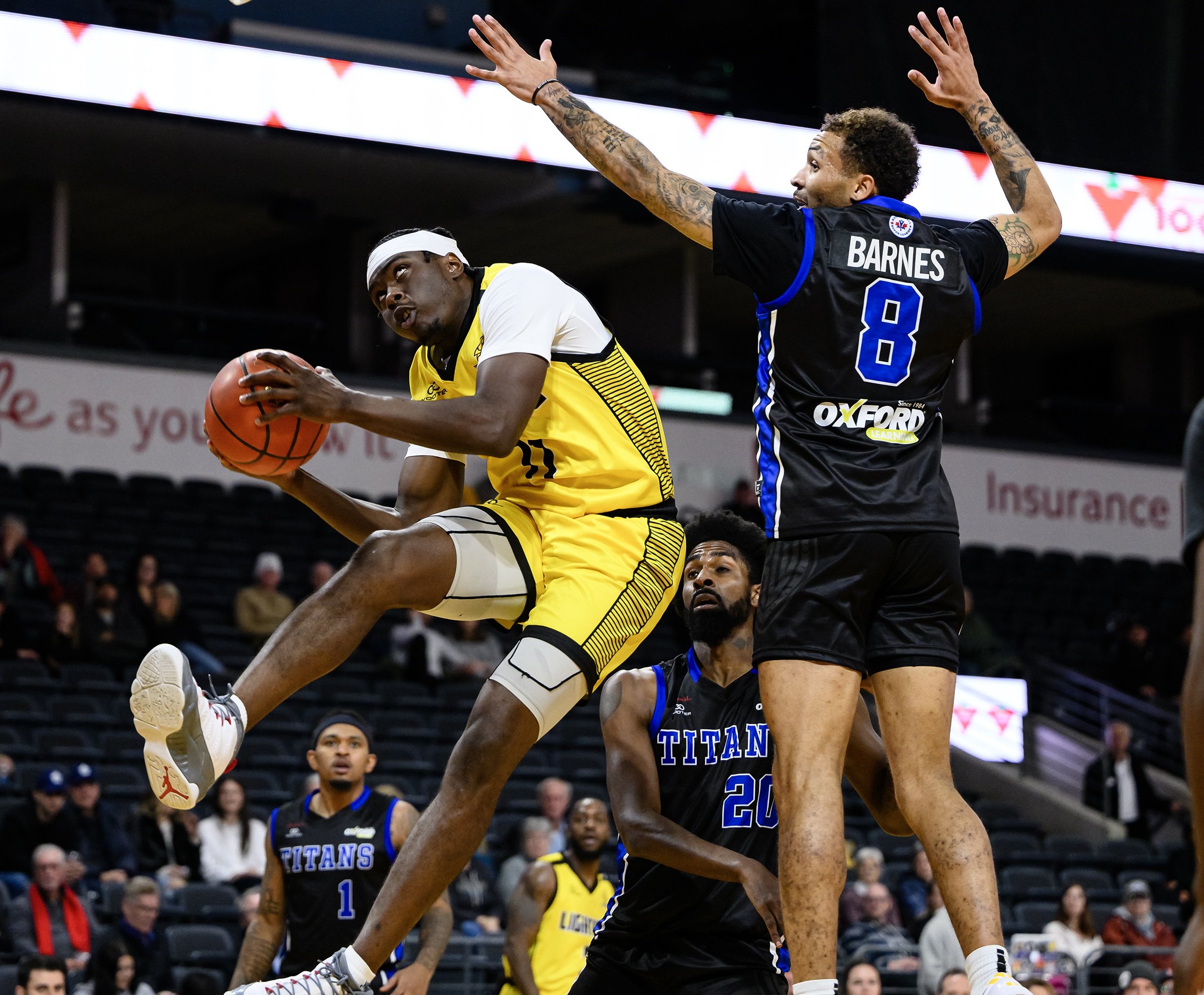






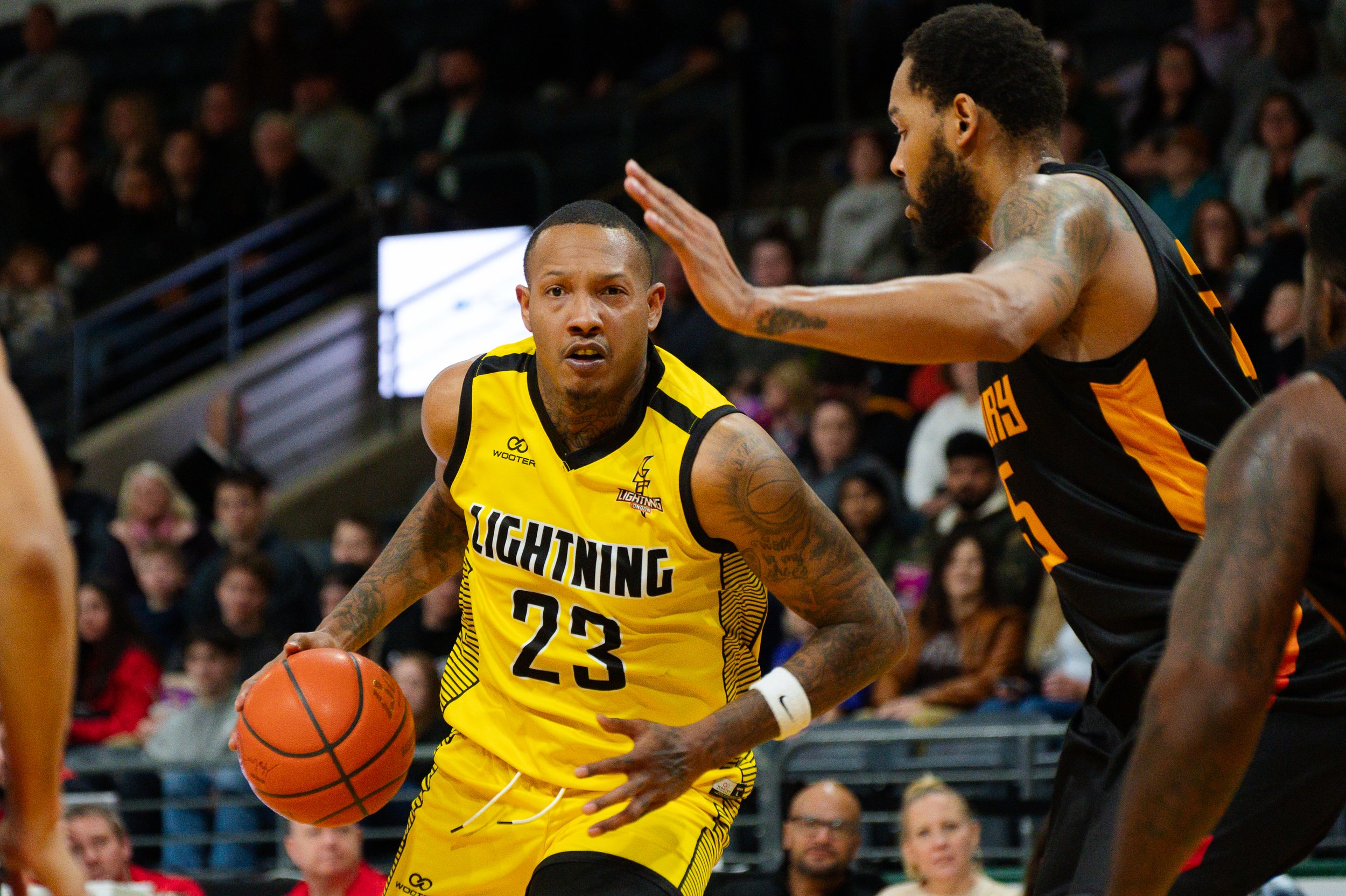
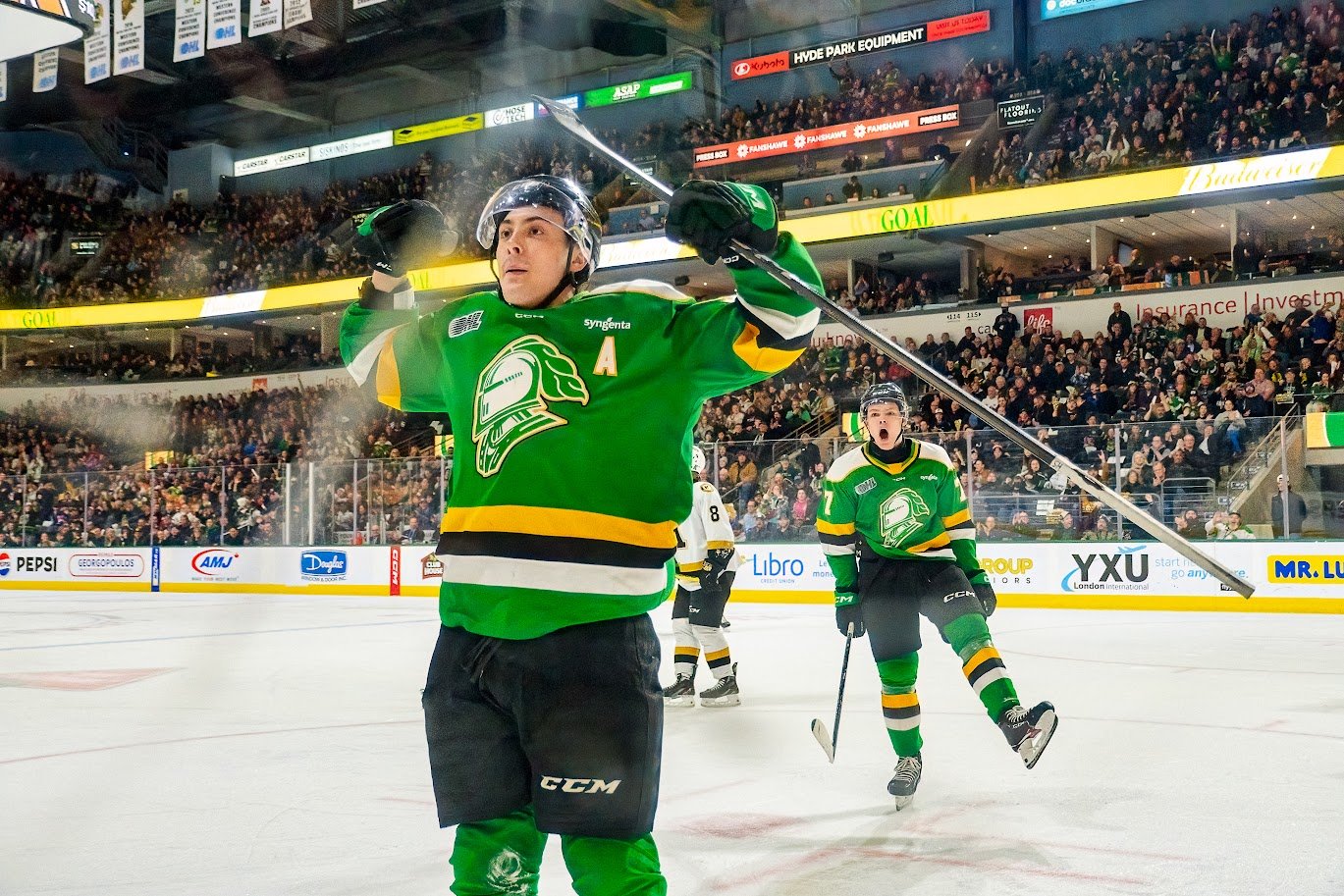
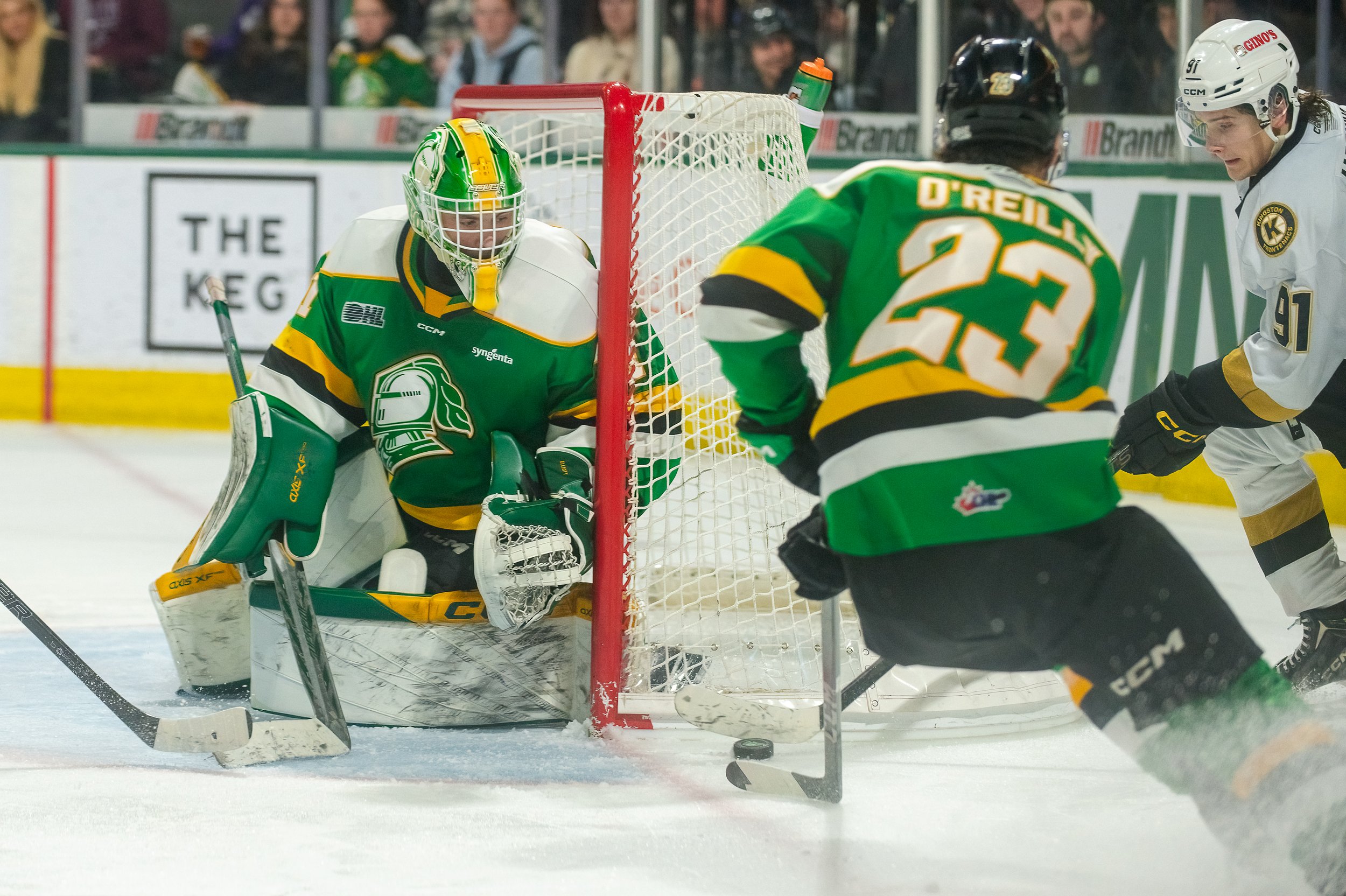
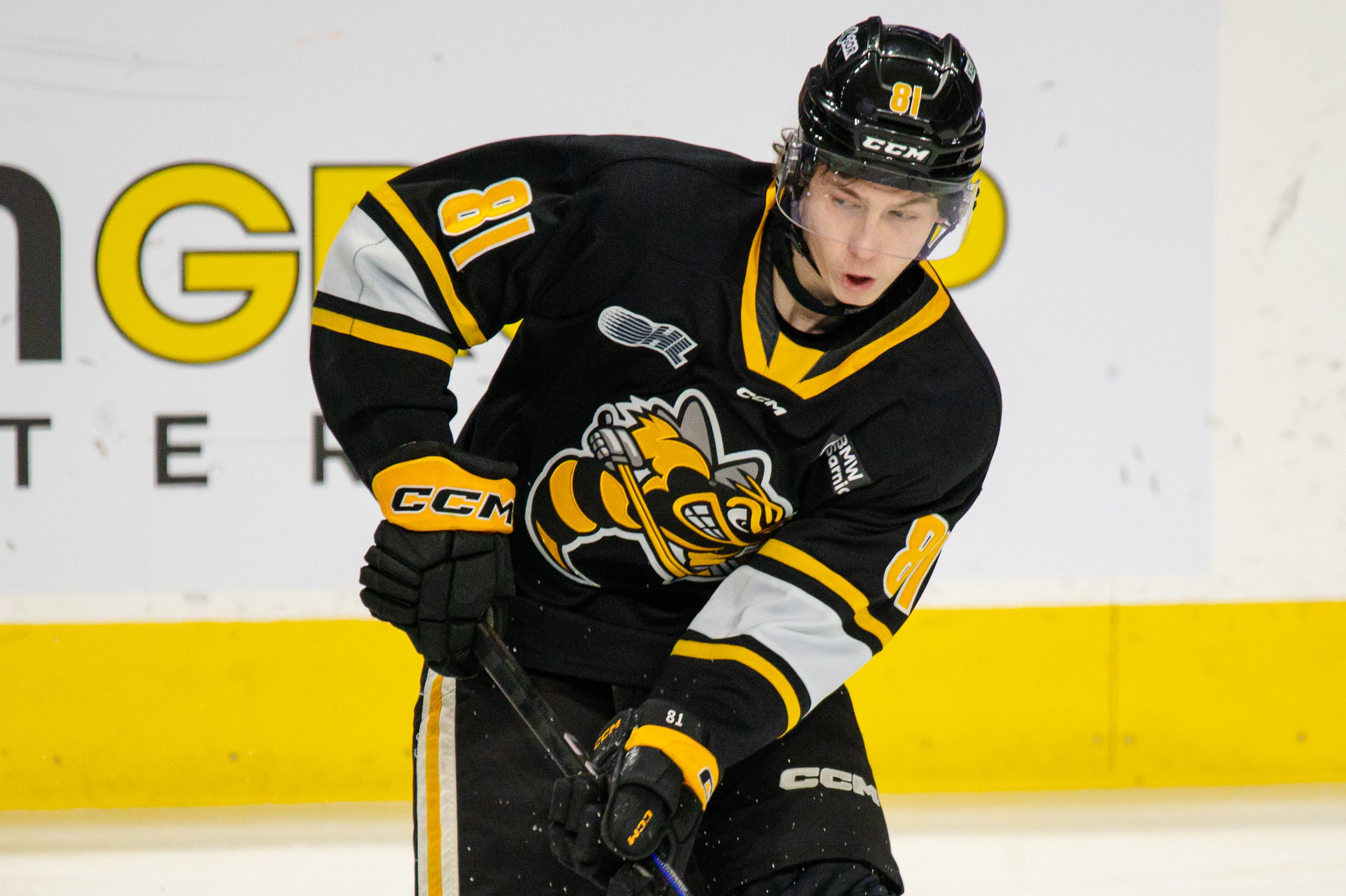

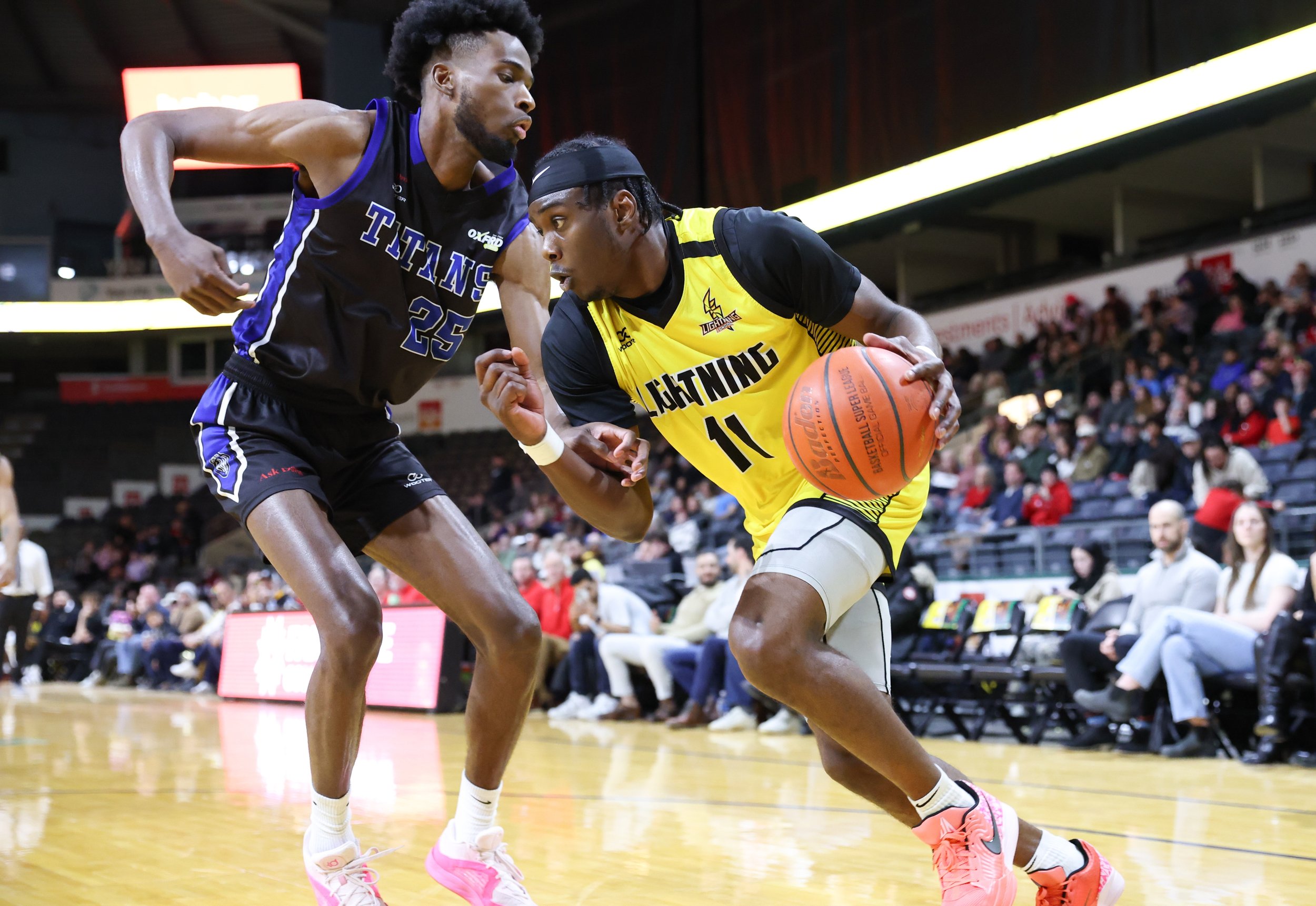

Knight Watch: After sweeping Owen Sound, London takes on the No. 5 Erie Otters in the second round of the OHL playoffs; Columnist Jake Jeffrey previews the matchup — and predicts the rest of the OHL series …